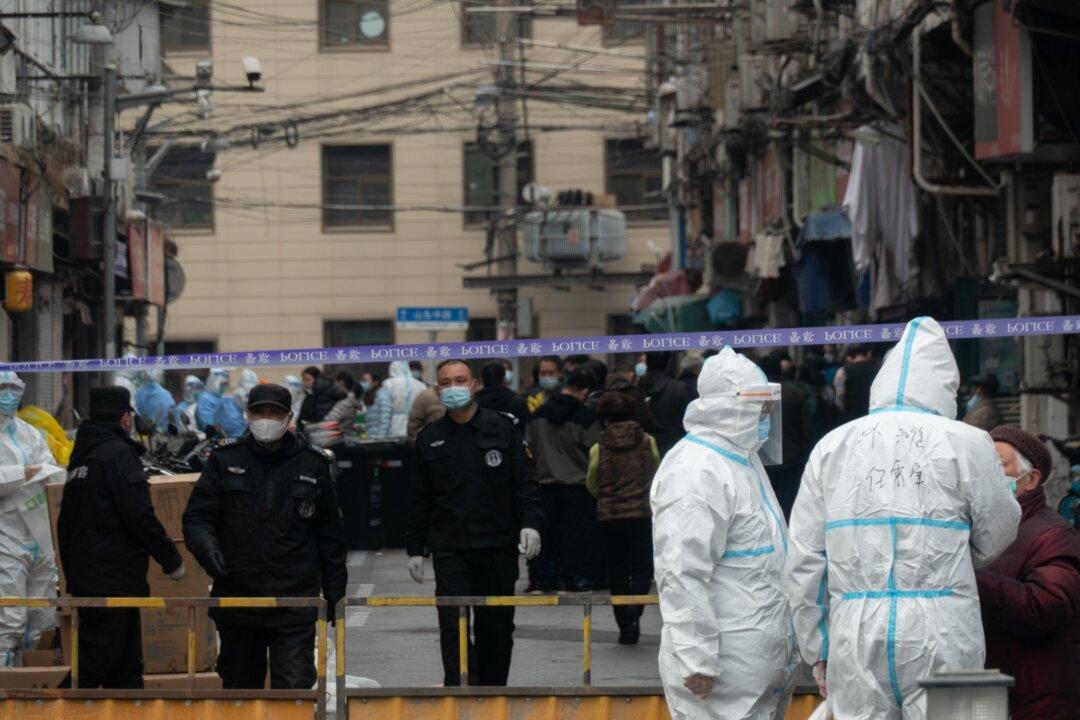China’s financial hub of Shanghai announced a new CCP (Chinese Communist Party) virus outbreak on Jan. 21 that includes two hospital workers.
While the two hospitals where the staffers work were temporarily closed, all city hospitals have been ordered to conduct nucleic acid tests for COVID-19 on all their employees.





